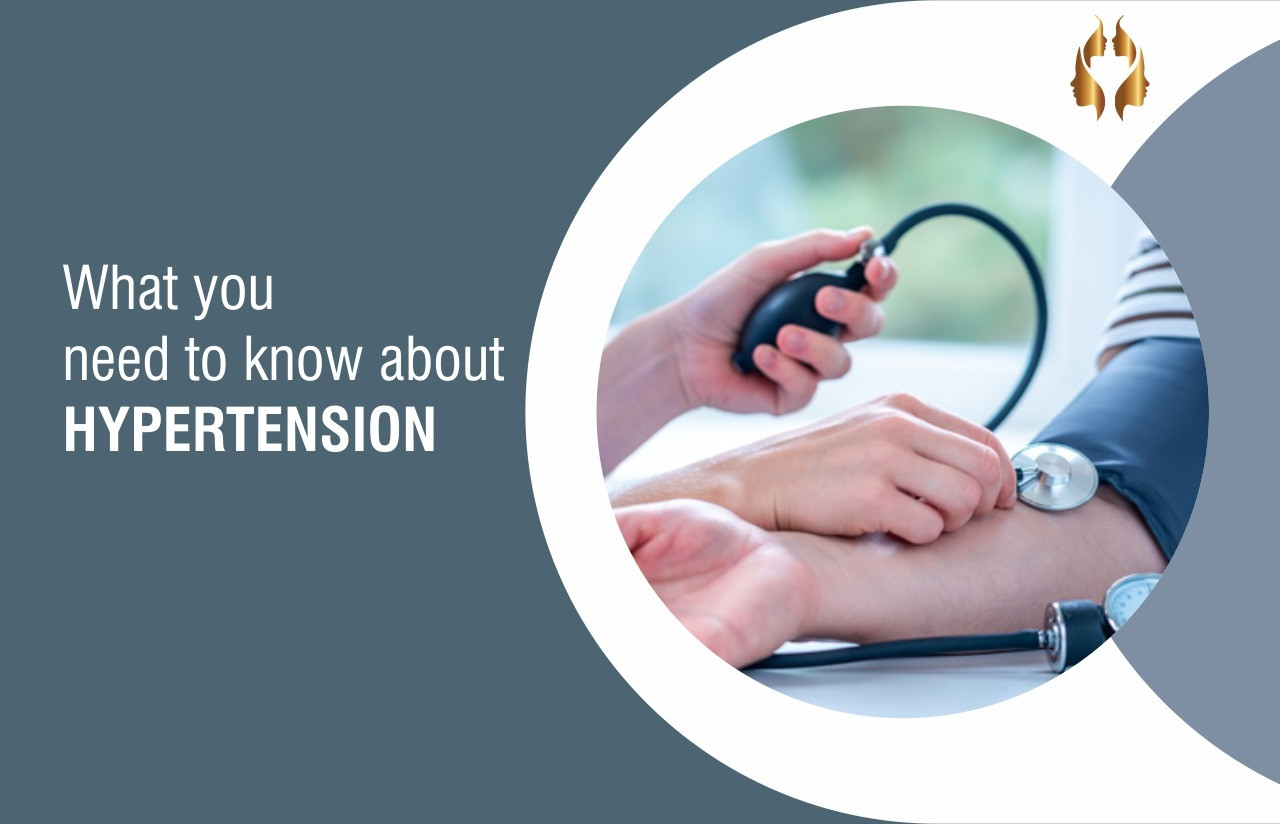Blog Details
Home > Blog > Blog Details

What you need to know about hypertension
Hypertension, commonly known as high blood pressure, is a condition that occurs when the heart pumps blood into the arteries, exerting pressure on their walls as it circulates throughout the body. The normal blood pressure reading is 120/80, with the numbers corresponding to the pressure when the heart beats and the pressure between beats, respectively. If your blood pressure reading exceeds this normal range, you are diagnosed with high blood pressure, or hypertension.
Hypertension is categorized into four stages based on the extent of the increase in blood pressure:
- Elevated BP: Blood pressure is in the range of 120-129/less than 80.
- Stage 1 High BP: Blood pressure falls within the range of 130-139/80-89.
- Stage 2 High BP: Blood pressure reaches 140 or higher/90 or higher.
- Hypertension Crisis: Blood pressure spikes above 180/higher than 120, requiring immediate emergency medical attention.
Causes of Hypertension
The exact causes of hypertension may not always be clear, but several factors can elevate the risk of developing this condition, including:
- Genetic predisposition
- A family history of high blood pressure
- Adrenal or thyroid issues
- Chronic kidney disease
- Sleep disorders
- Stress
- Smoking
- Obesity and being overweight
- Leading a sedentary lifestyle
- High dietary salt intake
- Alcohol consumption exceeding 1 drink a day for women and 2 drinks a day for men
- Advancing age
Hypertension can also be induced by hormonal problems, certain medications affecting blood vessels, and during pregnancy.
Complications Resulting from Hypertension
In many cases, hypertension does not exhibit noticeable symptoms for an extended period. While some individuals may experience symptoms like headaches, shortness of breath, or nosebleeds, it often goes undetected without regular health check-ups. Unfortunately, hypertension can silently inflict harm on multiple organs. The health problems associated with hypertension are diverse and include:
- Heart attack and heart failure
- Stroke
- Atherosclerosis
- Aneurysms
- Kidney problems
- Eye issues
- Metabolic syndrome, which can lead to diabetes, heart disease, and stroke
- Memory and cognitive impairments
- Dementia
Treatment Options for Hypertension
Managing hypertension is essential to safeguard your organs and maintain overall health. Typically, medication is required to keep your blood pressure within a healthy range. However, there are also lifestyle adjustments and choices that can help you manage hypertension effectively. Consider the following:
- Adopt a heart-healthy diet with lower salt intake.
- Lead an active lifestyle, incorporating regular exercise.
- Maintain a healthy body weight.
- Quit smoking and limit alcohol consumption.
- Reduce stress through relaxation techniques such as meditation or yoga.
- Regularly monitor your blood pressure, especially if you possess any risk factors.
During your medical appointments, your blood pressure will be routinely checked. These check-ups are vital to monitor your blood pressure, particularly if you have any risk factors. If you experience frequent headaches or find yourself breathless during everyday activities, it is crucial to seek professional advice. Keeping hypertension under control is essential to maintaining good health.
At MMRV Multispecialty Hospital, we not only treat hypertension to prevent complications but also diagnose potential issues at their early stages, enabling successful treatment to ensure your continued well-being.
CONTACT US
Book for Consultation
If you got any questions, please do not hesitate to send us a message. We reply within 24 hours.
24 Hours Service
You can call us any time of the day to fix up your appointments with us to clarify your concerns regarding procedures.